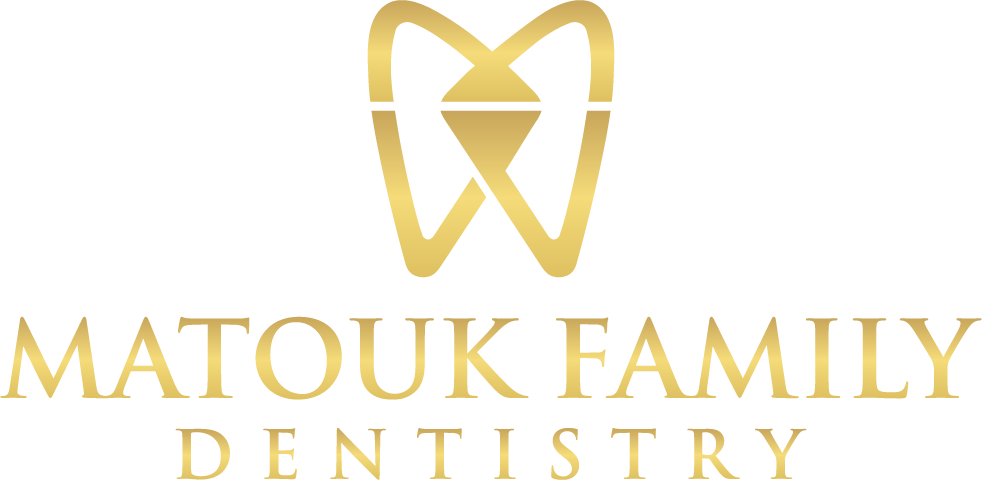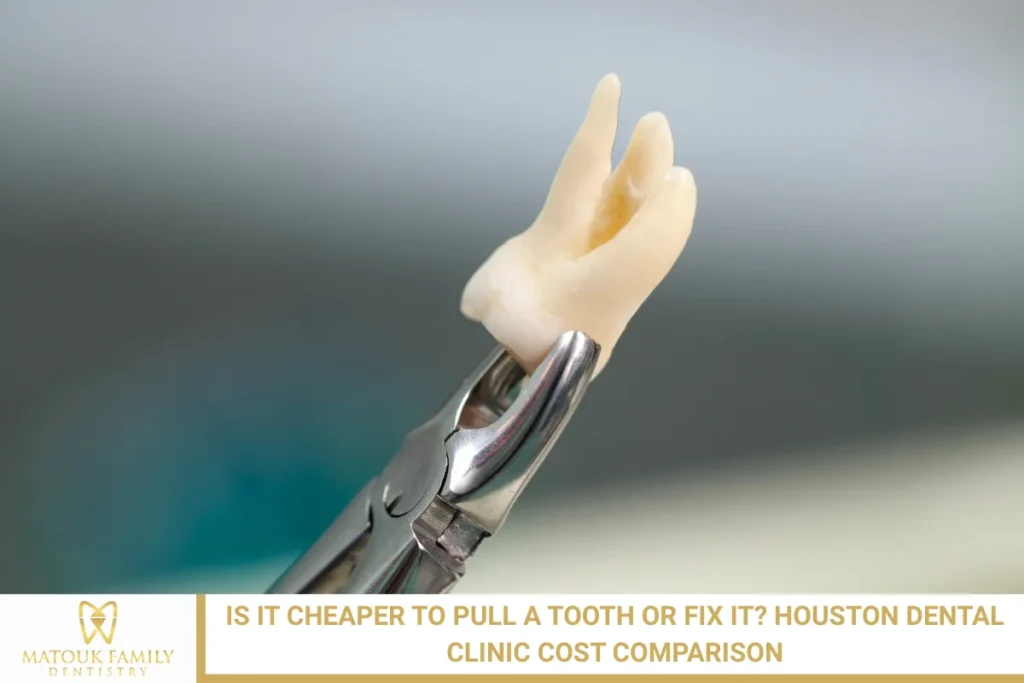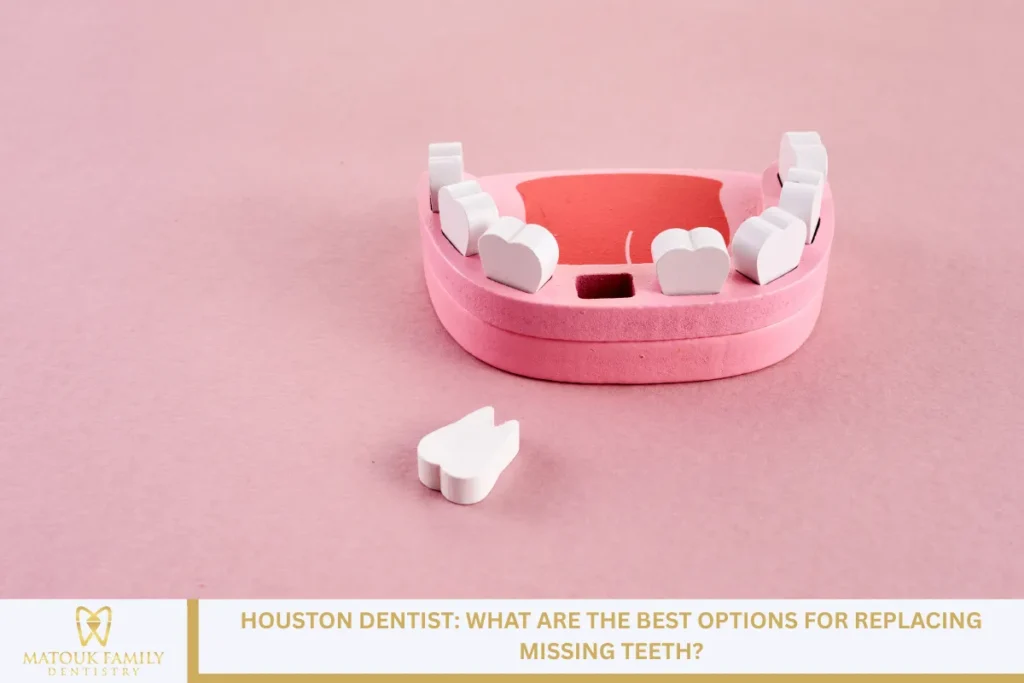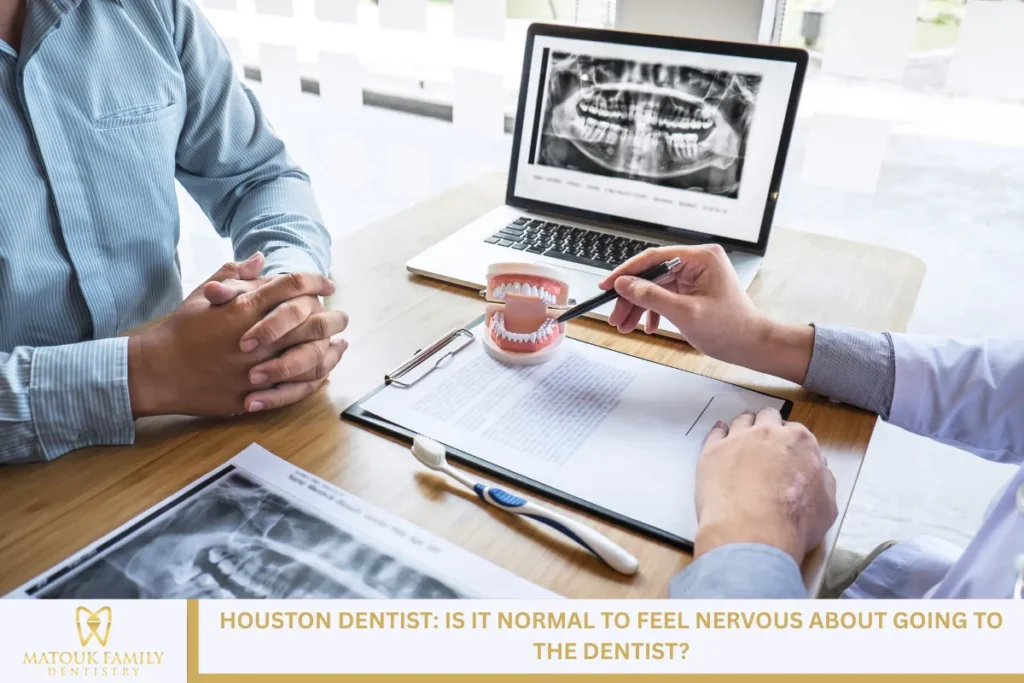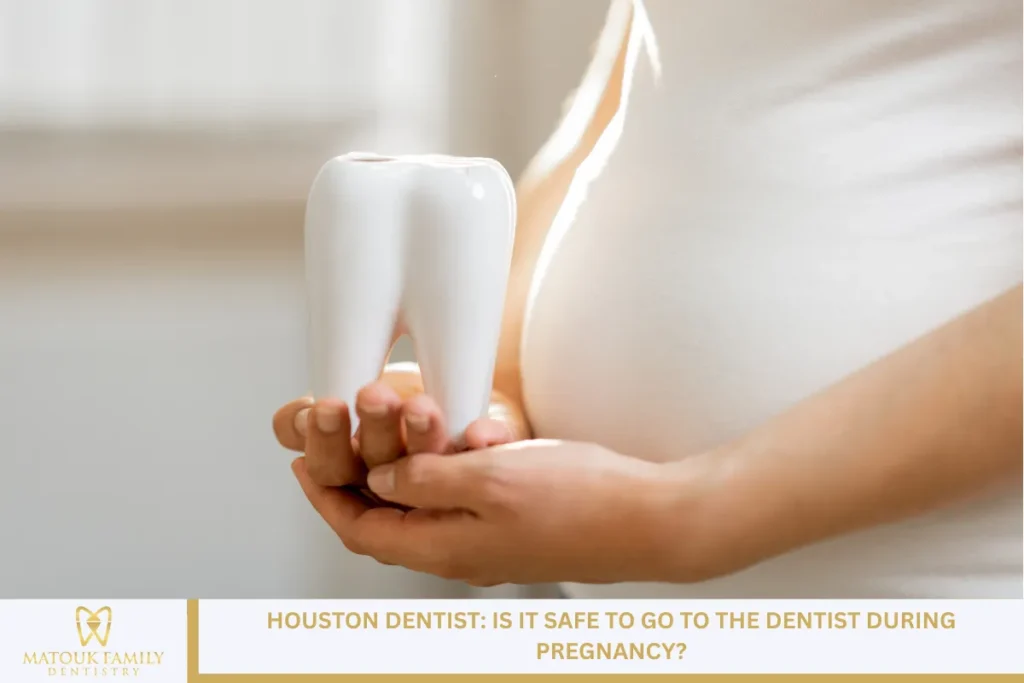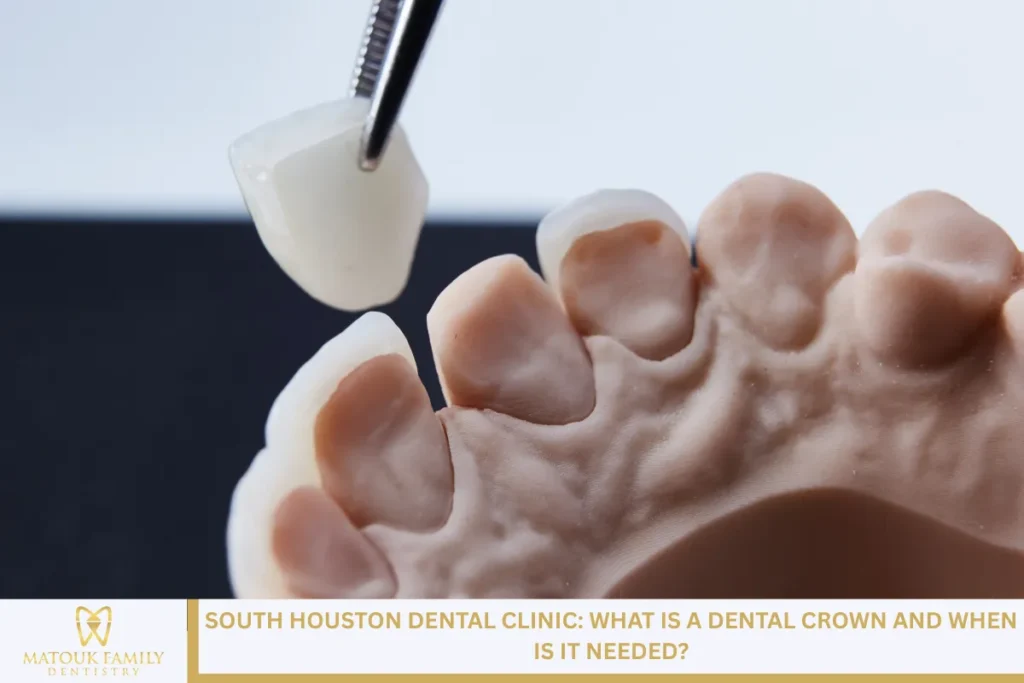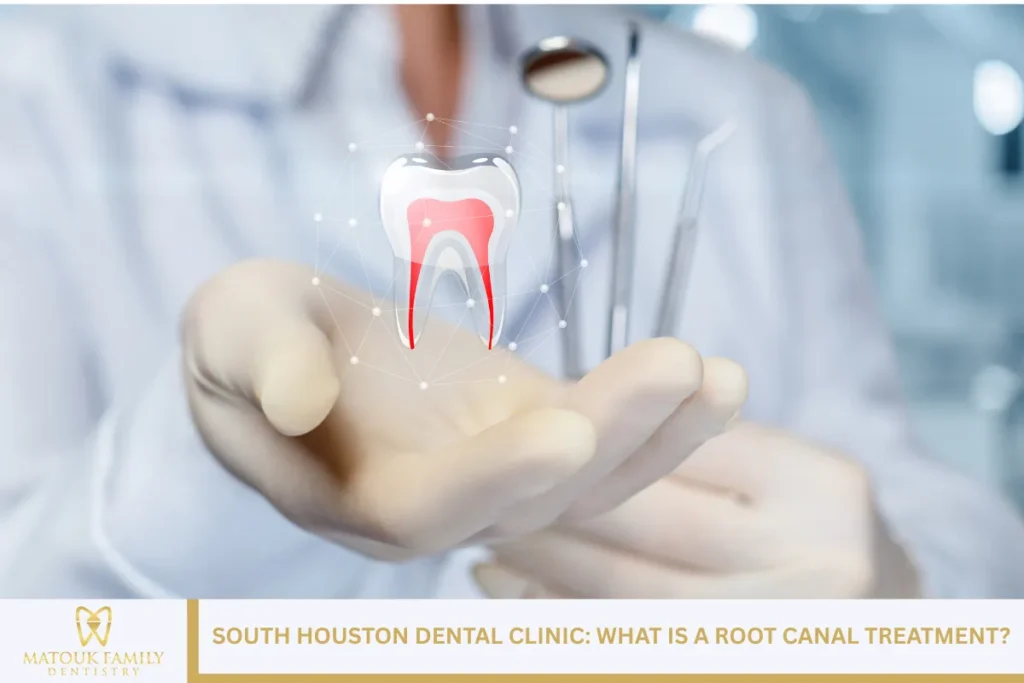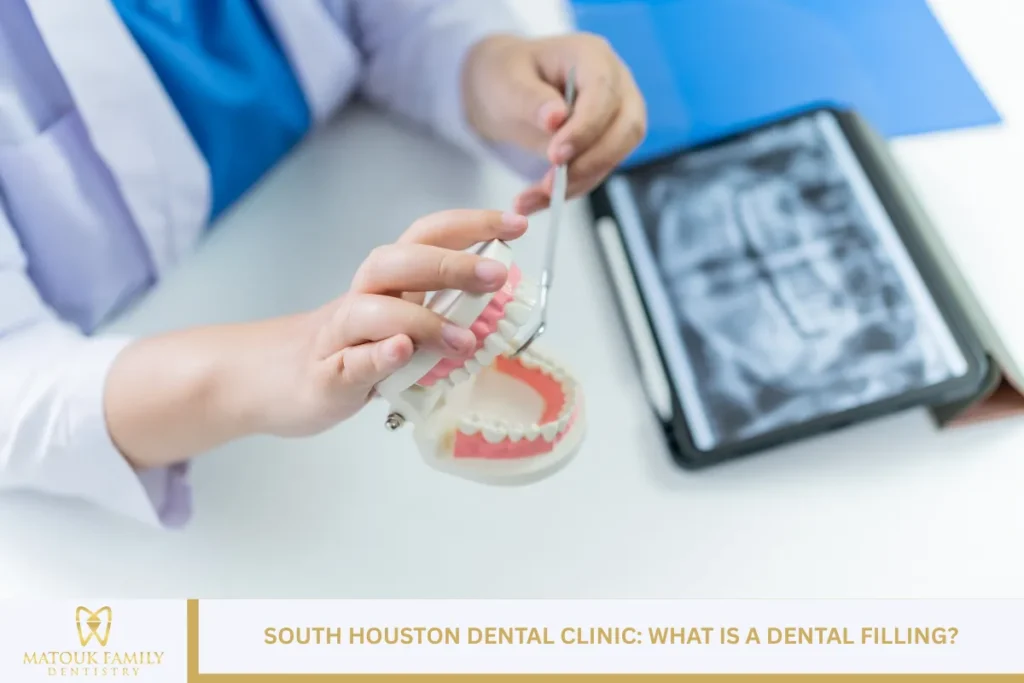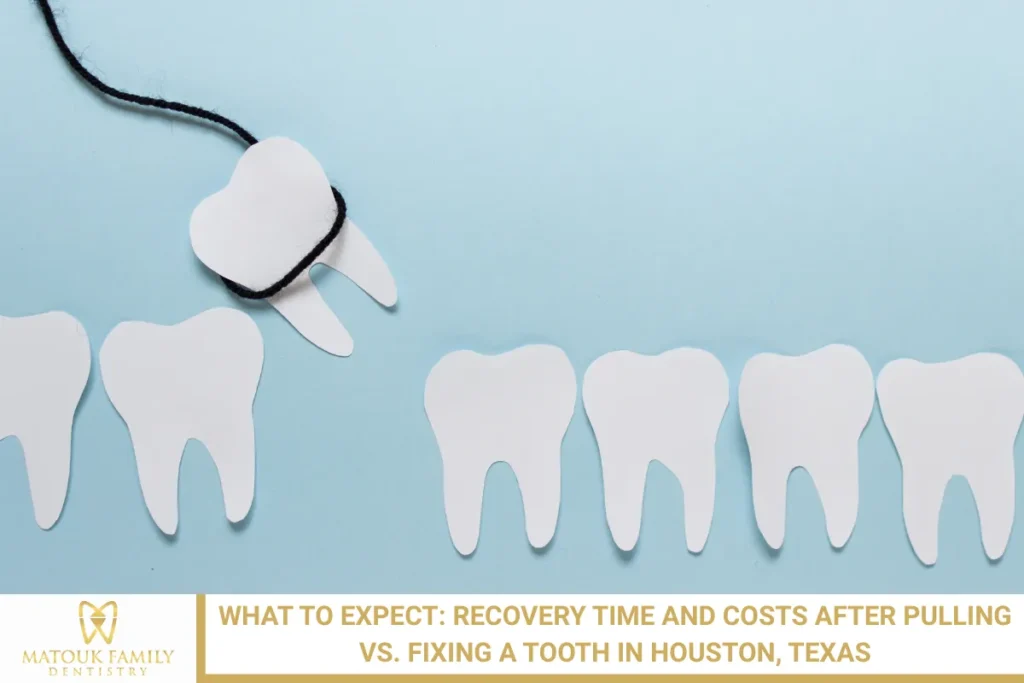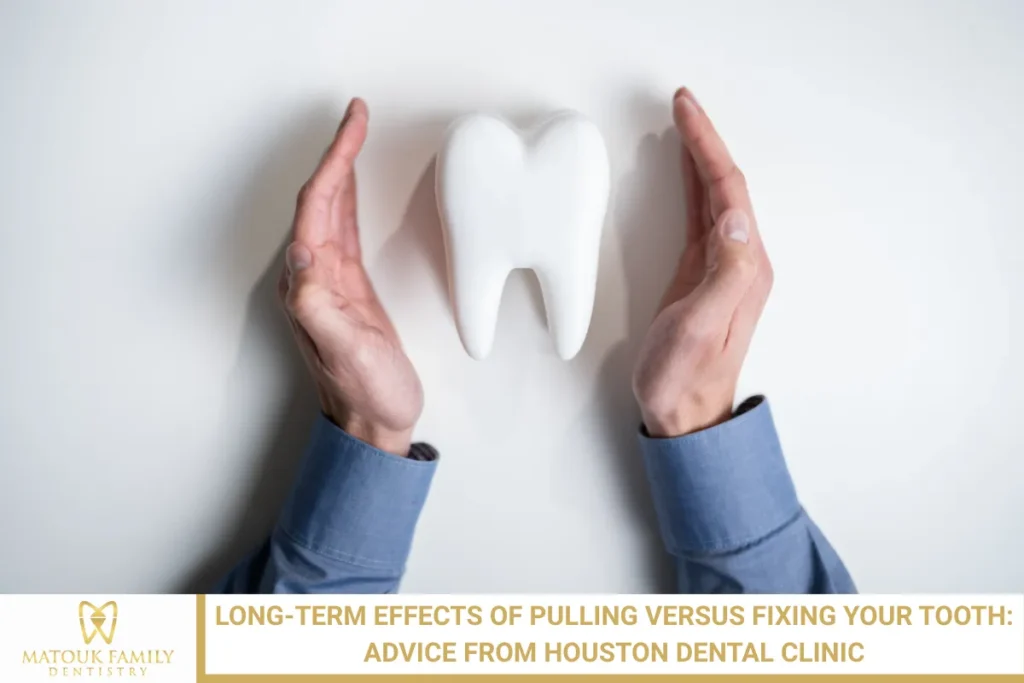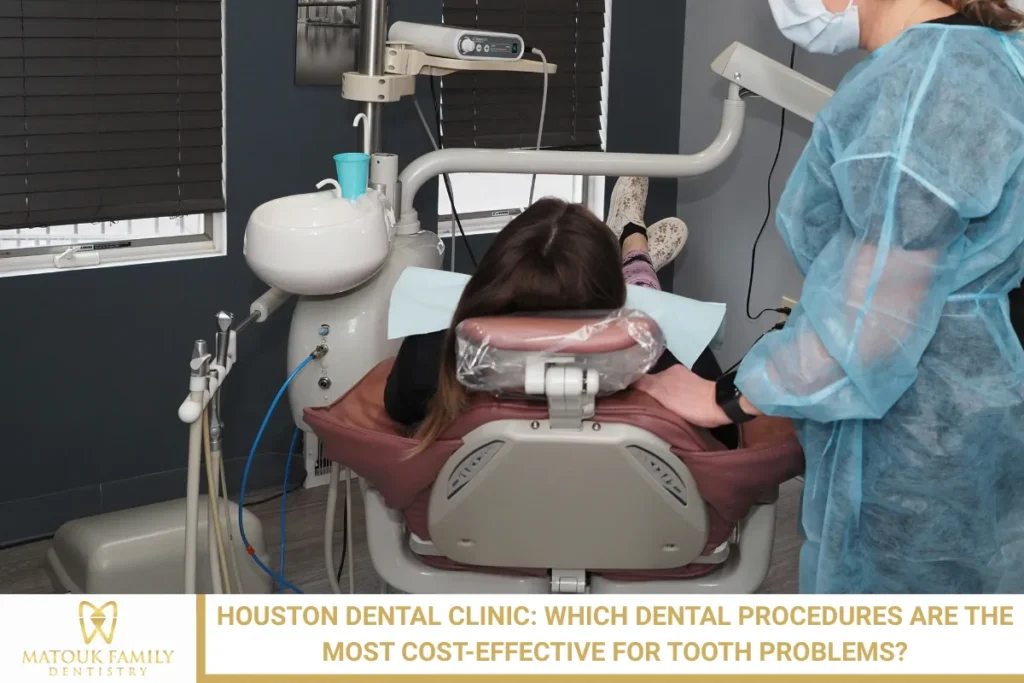Tooth problems can arise at the most inconvenient times, and a visit to a dental clinic in Houston often raises the question: Is it more affordable to have a damaged tooth pulled or to get it repaired? While both options aim to eliminate pain and restore oral health, the real difference lies in the costs—both short-term and long-term—as well as the impact each decision can have on your dental well-being.
Understanding the financial implications and oral health consequences of both tooth extraction and restoration is crucial before proceeding. This article offers a detailed breakdown of both options, helping you make a well-informed decision based on real numbers and expert dental knowledge tailored to Houston, TX residents.
What Is Tooth Extraction?
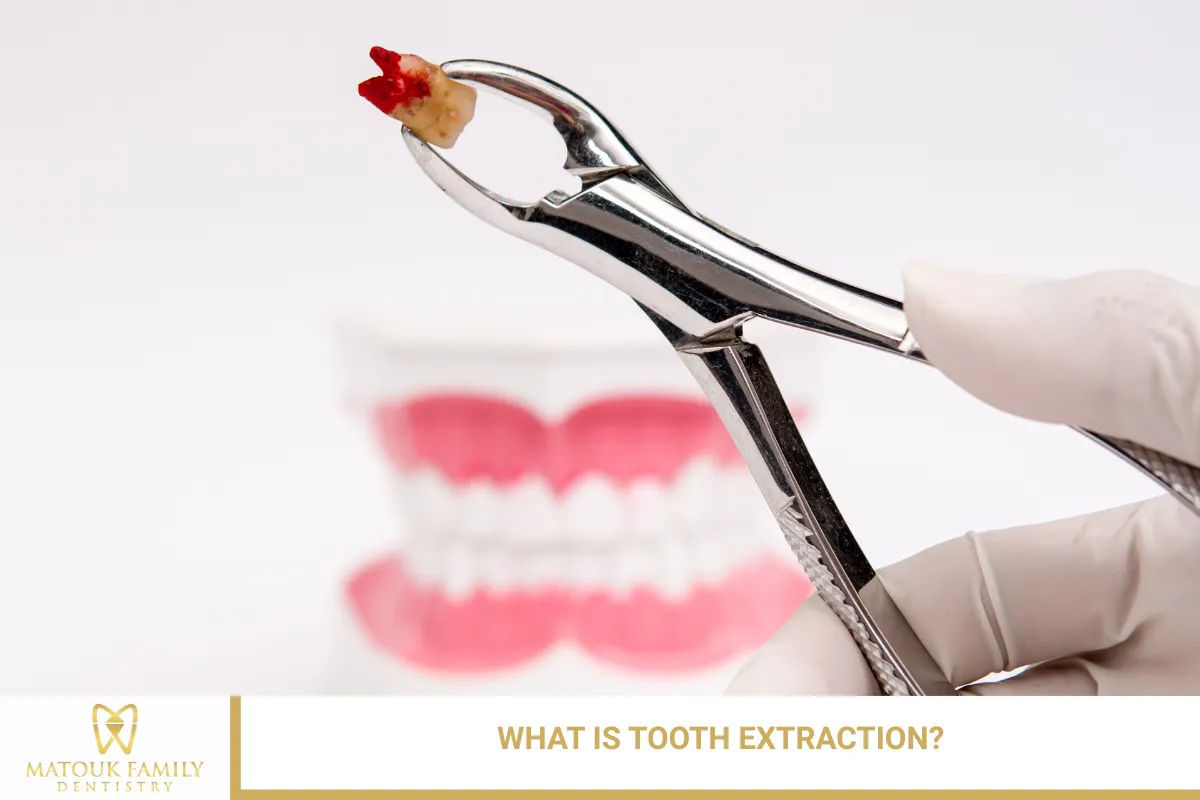
Tooth extraction is a dental procedure that involves completely removing a tooth from its socket in the jawbone. It’s typically performed by a dentist or oral surgeon under local or general anesthesia, depending on the complexity of the case.
There are two primary types of extractions:
- Simple Extractions: These procedures are performed on visible teeth that can be removed in one piece without the need for surgical intervention. They are most common for teeth that are loose or affected by mild to moderate decay.
- Surgical Extractions: These are more complex and usually involve removing teeth that are not easily accessible, such as impacted wisdom teeth or teeth broken below the gum line. This type often requires cutting into the gum and bone.
Tooth extraction may sound straightforward, but the effects on your overall dental structure can be significant if the lost tooth is not replaced. Removing a tooth may solve an immediate problem. Still, it often introduces new issues down the line, especially if the gap is left untreated.
What Does It Mean to Fix a Tooth?
Fixing a tooth refers to a wide range of dental treatments designed to restore the function and appearance of a damaged or decayed tooth. The goal is to preserve the natural tooth structure as much as possible while eliminating pain, infection, or cosmetic concerns.
Depending on the severity of the damage, common repair options include:
- Dental Fillings: Used for small to moderate cavities, fillings involve removing decayed portions of the tooth and filling the space with composite or amalgam material.
- Dental Crowns: For teeth that are cracked, weakened, or heavily filled, a crown can fully cover and protect the tooth. It restores both strength and function.
- Root Canal Treatment: When decay or infection reaches the pulp (the innermost part of the tooth), a root canal becomes necessary. It involves cleaning the infected root, sealing it, and often topping it with a crown.
- Dental Bonding: Minor chips or gaps can be treated with bonding, where a tooth-colored resin is applied and shaped to match the natural tooth.
All these treatments aim to preserve your natural teeth, which have long-term benefits for chewing, appearance, and jaw structure.
Cost Breakdown: Pulling a Tooth vs. Repairing It in Houston
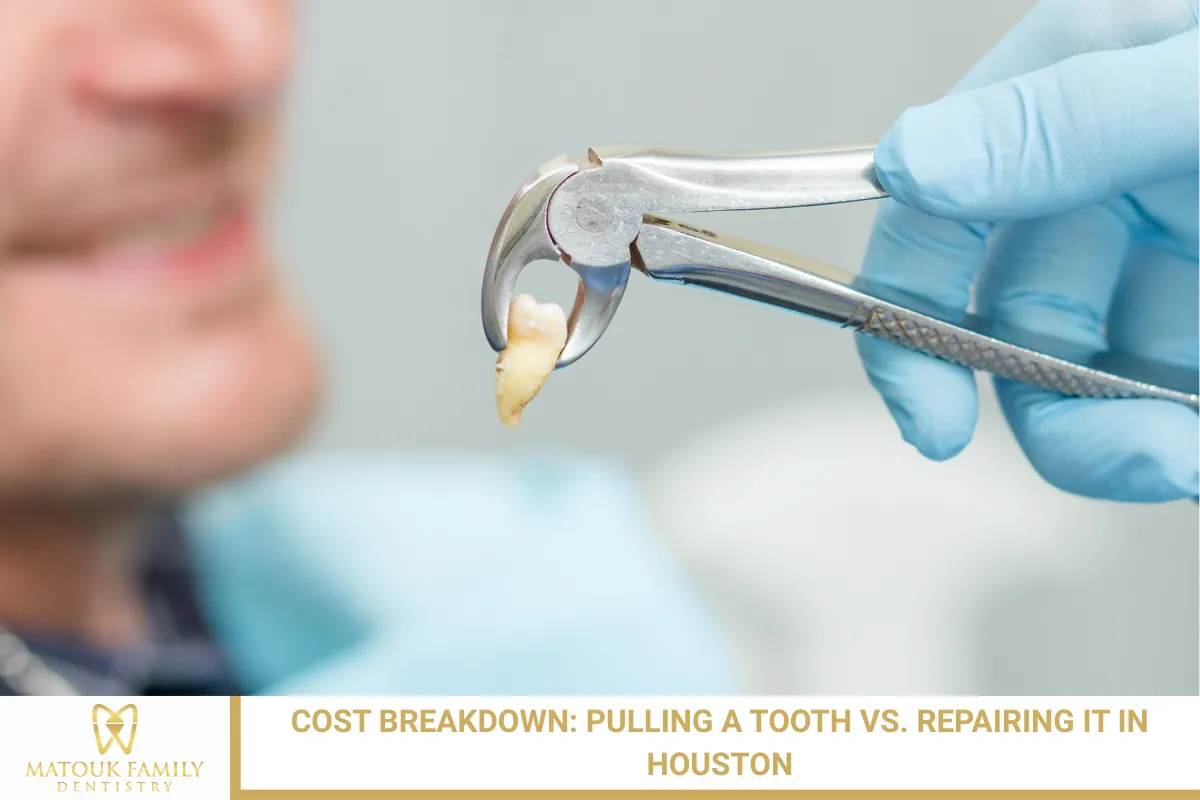
One of the most important factors for many patients is cost. In Houston, dental fees can vary significantly depending on the clinic, type of treatment, location, and whether you have insurance. Here’s a cost comparison based on general price ranges across reputable dental clinics in the Houston area:
Average Cost of Tooth Extraction
- Simple Extraction: $100 to $300 per tooth
- Surgical Extraction: $250 to $650 per tooth
- Additional Costs: X-rays, sedation, and follow-up care can add another $100 to $400
While pulling a tooth is generally seen as a more affordable option, especially for those without insurance, the financial burden can increase later if replacement options are required.
Average Cost of Tooth Repair
- Dental Filling: $150 to $400, depending on size and material
- Dental Crown: $900 to $1,500 per tooth
- Root Canal and Crown Combo: $1,200 to $2,500 total
- Bonding: $200 to $500 per tooth
Although repair may seem more expensive initially, it can save patients thousands in the future by avoiding the need for bridges, dentures, or implants.
Long-Term Financial Impact of Each Option
Saving money up front may not always result in cost savings over time. A missing tooth creates a gap that often leads to additional dental problems if not addressed properly.
Financial Consequences of Extraction
After an extraction, failing to replace the missing tooth can cause:
- Tooth shifting, leading to misalignment
- Bone loss in the jaw due to a lack of stimulation
- Gum recession and periodontal issues
- Bite problems that require orthodontic treatment
Eventually, patients may need:
- Dental Implants: $3,000 to $6,000 per tooth
- Fixed Bridges: $2,000 to $5,000 for a three-unit bridge
- Dentures: $1,000 to $3,000, depending on materials
These costs far outweigh what might have been spent on repairing the tooth initially.
Long-Term Value of Tooth Repair
Restoring a tooth preserves the natural bite and avoids the complications that often follow extractions. When maintained with good oral hygiene, a restored tooth can last for many years, minimizing future dental expenses.
Health Implications of Each Procedure
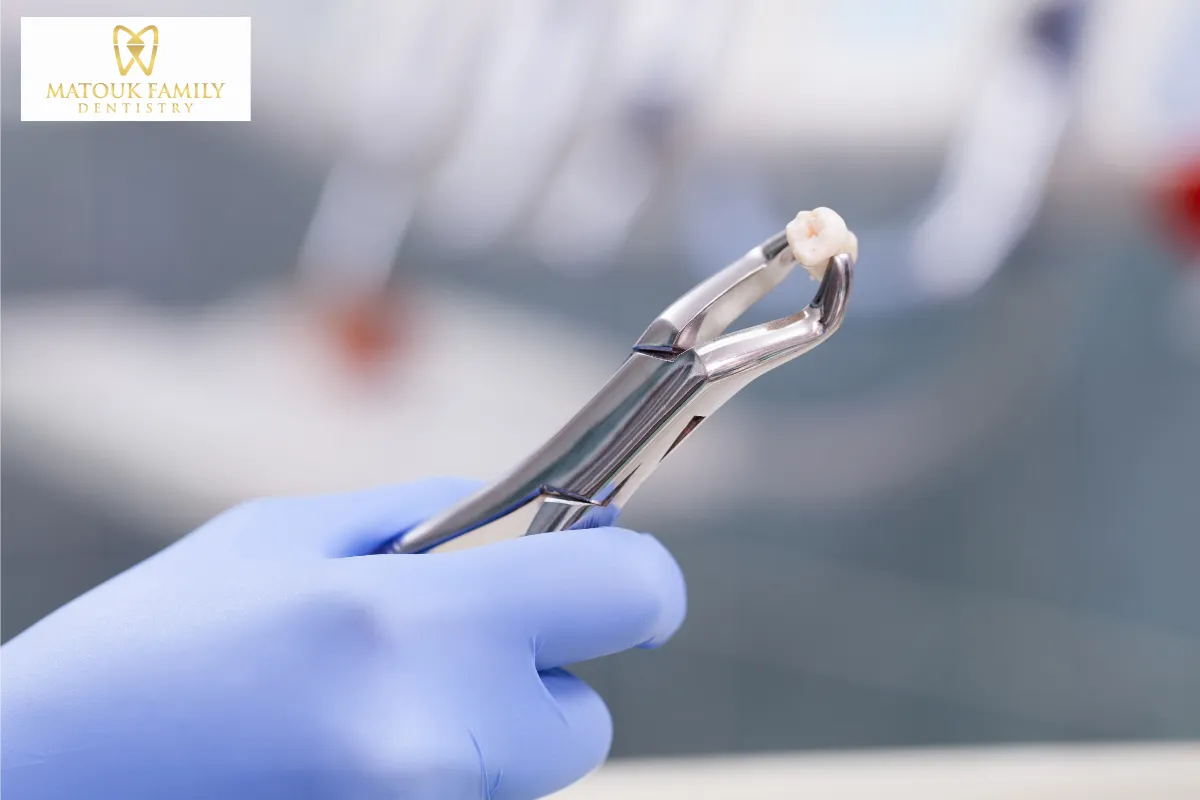
Money isn’t the only concern—your oral and overall health play a huge role in choosing the right path.
Health Impact of Extraction
Tooth extraction stops the immediate issue—pain, infection, or crowding—but can lead to the following:
- Loss of bone density in the jaw
- A higher chance of developing gum disease in the exposed area
- Difficulty chewing certain foods
- Speech changes and cosmetic issues
Health Benefits of Repair
Preserving the natural tooth supports:
- Better chewing efficiency
- Jawbone stability
- Proper alignment of neighboring teeth
- A healthy-looking smile
Dentists across Houston consistently emphasize the value of tooth retention whenever possible.
Insurance Coverage and Payment Options in Houston
Most dental insurance plans offer partial coverage for both extractions and restorative treatments. The exact percentage depends on the type of plan and the procedure.
Typical coverage in Houston includes:
- Fillings and Root Canals: 70% to 80%
- Crowns: 50% to 70%
- Extractions: Up to 90% for basic procedures
- Dental Implants and Bridges: Often excluded or covered at 50% or less
If you don’t have insurance, many dental clinics offer flexible payment plans or in-house discount programs to make treatment more accessible.
Making the Right Decision: Which Option Should You Choose?
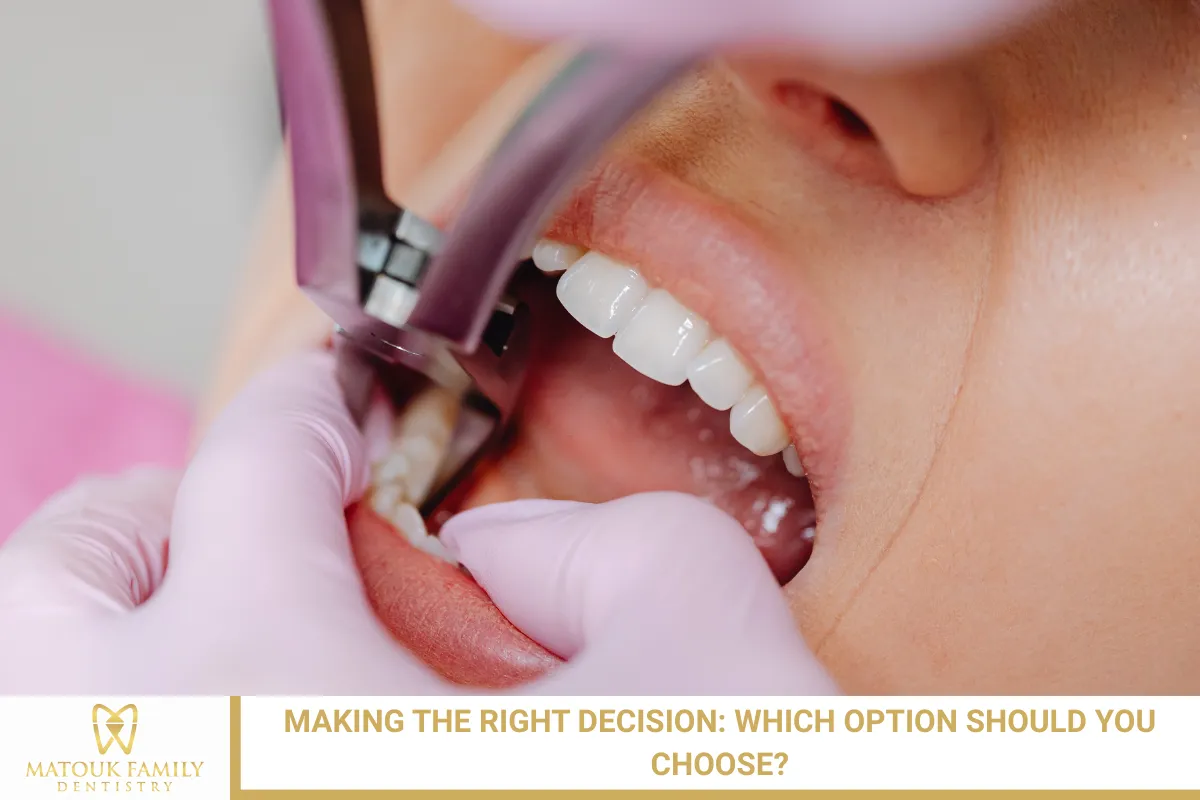
Choosing between extraction and repair isn’t always simple. It depends on several personal factors, such as the extent of tooth damage, your oral health history, budget, and long-term goals.
Generally speaking:
- Pulling a tooth may be ideal for severely damaged, infected, or impacted teeth
- Repairing a tooth is best when there’s enough healthy structure to support the restoration
A professional evaluation is the only way to determine the most suitable option.
Summary: Cost, Health, and the Smart Choice
Both tooth extraction and tooth repair serve specific purposes. In terms of short-term cost, extraction often wins. However, considering long-term dental health and potential future expenses, repairing a tooth is often the more prudent investment.
Keeping your natural teeth intact preserves not only your smile but also the function of your mouth and jaw. Paying a bit more upfront for repairs can reduce the risk of larger issues—and larger bills—down the road.
Final Thoughts on Dental Decisions in Houston
Deciding whether to pull or fix a tooth is more than just a budget call—it’s a personal health decision with long-lasting effects. While extraction may seem like a quick fix, it often comes with hidden costs that surface later in the form of tooth replacements or bite correction.
A restored tooth, on the other hand, continues to serve its purpose without disrupting your dental alignment or appearance. Most dental professionals agree that saving a tooth is usually the better option when possible. Always consider both the short-term cost and long-term outcomes before making a choice.
Houston Dental Clinic – Matouk Family Dentistry
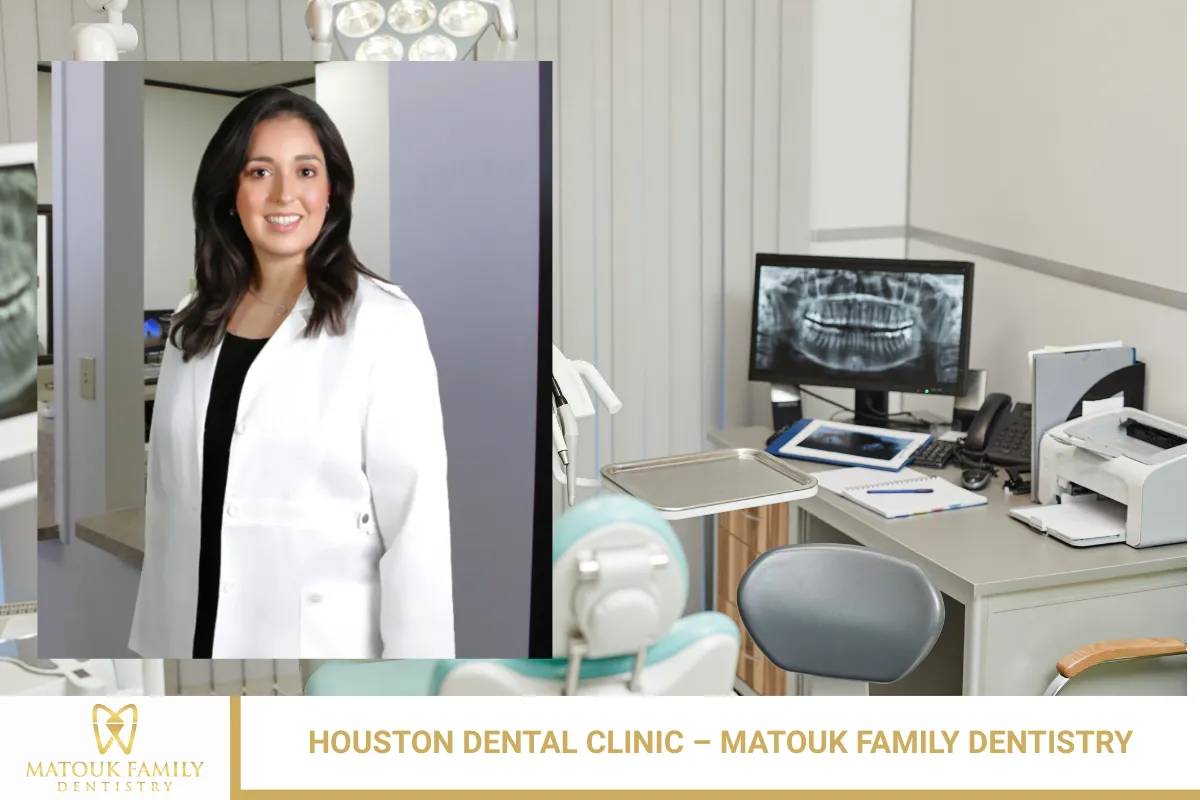
Looking for a trusted dental clinic in Houston? Matouk Family Dentistry provides personalized care to help you determine the best course of action between tooth extraction and repair, tailored to your specific dental needs.
We’re conveniently located just off the Gulf Freeway and offer a wide range of services, including dental fillings, crowns, root canals, exams, cleanings, and even implant restorations. Whether you need preventive care or treatment for an existing problem, our experienced team is ready to support you with clear communication and compassionate care.
To learn more or schedule an appointment, call us at (281) 484-3675!
Frequently Asked Questions About Tooth Extraction vs. Repair in Houston
1. Is it better to save a tooth or extract it?
In most cases, saving a natural tooth is considered the better option. Dentists recommend preserving your natural teeth whenever possible, as this helps maintain the alignment of your bite, jawbone integrity, and natural chewing function. Extracting a tooth may seem easier or less expensive upfront. Still, missing teeth can lead to jawbone shrinkage, shifting of adjacent teeth, and bite complications. Over time, you may require additional dental treatments, such as implants, bridges, or dentures, to restore both function and appearance. These procedures are more costly and require additional appointments and recovery time. Tooth-saving procedures, such as root canals and crowns, may initially be more expensive; however, they can be more cost-effective in the long run. Still, they protect your long-term oral health and often require less maintenance in the future. Always consult with a trusted dental clinic in Houston to get a complete evaluation before making a decision. Your dentist will help determine the best course based on the tooth’s condition and your overall dental health.
2. How much does a tooth extraction cost without insurance in Houston?
Without dental insurance, the cost of tooth extraction in Houston can vary depending on the complexity of the procedure. A simple extraction, which involves removing a visible tooth without surgical intervention, typically costs between $100 and $300 per tooth. On the other hand, surgical extractions, which are necessary for impacted or broken teeth, can cost between $250 and $650 or more, depending on factors such as sedation, x-rays, and the tooth’s position. If you require general anesthesia or have other medical considerations, the price may increase. Additional fees may also apply for diagnostic imaging and post-operative medications. Fortunately, many dental clinics in Houston offer financing plans, sliding scale fees, or in-house membership discounts for uninsured patients. It’s always a good idea to ask your clinic for a full cost breakdown before the procedure. This helps you avoid unexpected charges and allows you to budget accordingly for your dental care.
3. What happens if you don’t replace an extracted tooth?
Leaving a tooth socket empty after extraction can lead to several long-term complications. First, the surrounding teeth may begin to shift into the space, causing misalignment and bite problems. This can result in uneven tooth wear, jaw discomfort, or even temporomandibular joint (TMJ) issues. Second, the jawbone beneath the missing tooth will start to deteriorate due to a lack of stimulation. This process, known as bone resorption, weakens the jawbone and can alter your facial structure over time, often resulting in a sunken appearance. Third, food particles and bacteria can collect in the space, increasing the risk of gum disease and infection. To prevent these issues, dental professionals recommend replacing the missing tooth with options like implants, bridges, or partial dentures. These restorations restore function, maintain alignment, and preserve bone density. A reputable dental clinic in Houston can guide you through your best replacement options, tailored to your budget and oral health needs.
4. How long does a dental crown last after tooth repair?
A dental crown typically lasts between 10 and 15 years, though some can last even longer with proper care. The longevity of a crown depends on several factors, including the material used, your oral hygiene habits, and the degree of wear and tear to which the crown is exposed. Porcelain crowns, for instance, are aesthetically pleasing but slightly less durable than metal or porcelain-fused-to-metal crowns. Grinding your teeth, biting hard foods, or poor oral hygiene can shorten a crown’s lifespan. Regular dental checkups allow your dentist to monitor the condition of your crown and detect early signs of wear or damage. In Houston, many dental clinics use high-quality materials and offer same-day crown services using digital technology. Brushing twice daily, flossing, and avoiding habits like chewing ice can significantly extend the lifespan of your crown. With good care, it’s not uncommon for crowns to last 20 years or more without needing replacement.
5. Can I go back to work after a tooth extraction?
Whether you can return to work after a tooth extraction depends on the type of extraction and your individual recovery response. For a simple extraction, most people can resume light activity, including work, within 24 hours—especially if their job doesn’t involve heavy physical labor. For surgical extractions, such as impacted wisdom teeth, it’s recommended to take at least 2 to 3 days off to allow swelling and discomfort to subside. It’s also important to avoid bending, lifting, or strenuous movement that could disrupt the healing process or dislodge the blood clot (which can cause a painful condition known as dry socket). Your Houston dental clinic will provide you with specific post-operative care instructions, including pain management tips and activity restrictions. Most importantly, stay hydrated, eat soft foods, and avoid smoking or using straws for the first few days. Always follow your dentist’s advice for a safe and quick recovery.
Read more: Dental Clinic in South Houston, TX: What are Preventive Dental Services?
